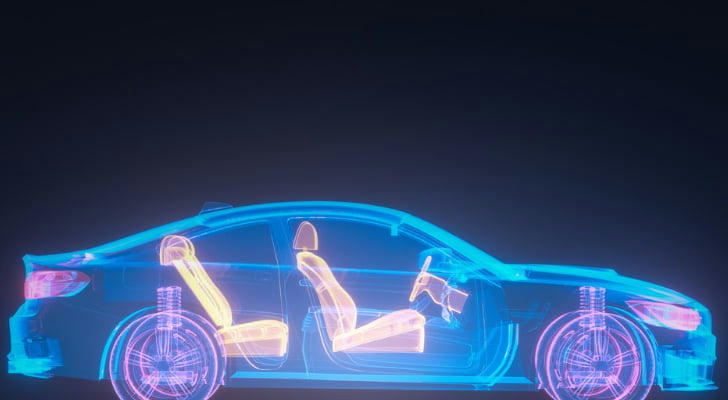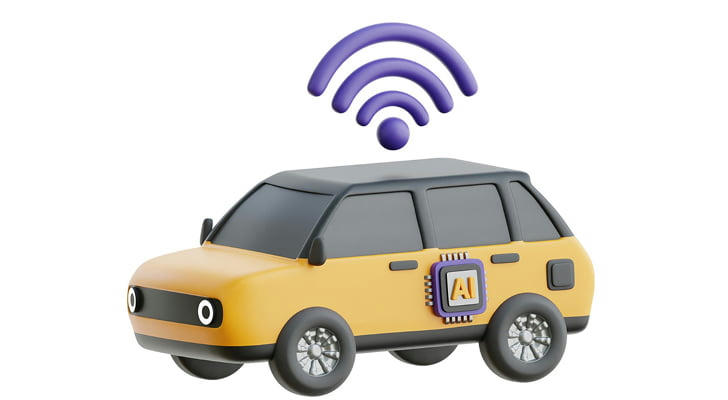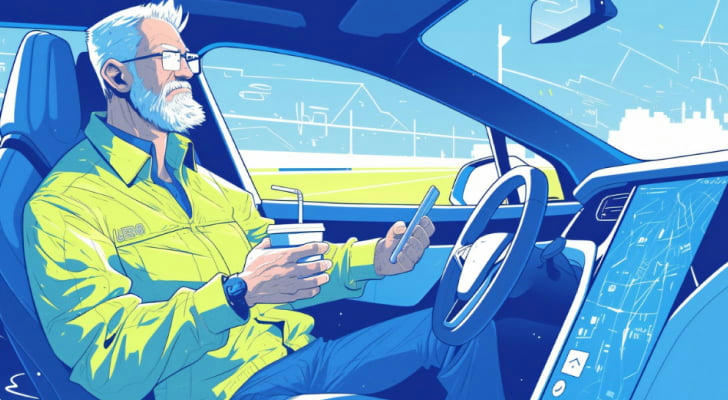Are We Ready for Self-Driving Cars? 🚗🤖

The future is fast approaching, and it’s bringing something that seemed like a science fiction dream just a decade ago: self-driving cars. Autonomous vehicles (AVs) are set to change the way we travel, commute, and even think about car ownership. But the question remains: are we truly ready for them?
In this article, we’ll dive into the exciting possibilities, the challenges, and the complexities of self-driving cars to understand where we stand today and what might lie ahead on the road to fully autonomous driving.
1. What Are Self-Driving Cars? 🤔
A Quick Overview of Autonomous Vehicles
Self-driving cars are vehicles that can operate without human intervention, using a combination of sensors, cameras, radar, and artificial intelligence (AI) to navigate and make decisions on the road. These cars are designed to detect their surroundings, make real-time decisions, and drive safely from one place to another.
The technology behind these cars is based on a system of sophisticated algorithms, machine learning, and sensor fusion. The idea is to create a fully autonomous car capable of Level 5 autonomy—that is, a car that can drive itself with no human input at all, even in complex environments. Currently, most cars are at Level 2 or 3, where they can assist with certain tasks but still require human oversight.
2. The Benefits: Why We Want Self-Driving Cars 🚀
Safety First: Reducing Human Error
One of the biggest selling points of self-driving cars is safety. It’s no secret that human error is responsible for a significant portion of road accidents. Distracted driving, speeding, drunk driving—these are all risks that come with having a human behind the wheel.
Self-driving cars, on the other hand, don’t get tired, distracted, or impaired by alcohol. They rely on sensors and data to make real-time decisions, and they can even communicate with other cars on the road to improve safety. Proponents argue that AVs have the potential to dramatically reduce traffic fatalities and injuries.
Less Traffic and More Efficient Travel
Self-driving cars could also help alleviate traffic congestion. With advanced algorithms, these cars can communicate with each other to optimize routes, avoid bottlenecks, and even take the shortest paths to your destination. If most vehicles on the road were autonomous, we could see a smoother flow of traffic, less gridlock, and shorter travel times.
Additionally, self-driving cars have the potential to improve fuel efficiency. By coordinating movements with other vehicles, these cars could drive at more consistent speeds, reducing stop-and-go traffic and saving fuel in the process.

3. The Challenges: Are We Really Ready? 🧐
The Road to Full Autonomy is Paved with Hurdles
While the idea of a car that drives itself is thrilling, the road to achieving full autonomy is far from smooth. There are numerous challenges—both technical and societal—that we must address before self-driving cars become commonplace.
Technical Hurdles
While the technology behind autonomous vehicles has come a long way, there’s still much to be done. Self-driving cars rely on complex sensors, AI systems, and machine learning algorithms to make decisions in real-time. These systems have to be able to handle a wide variety of road conditions, weather challenges, and unpredictable human behavior.
For example, how should a self-driving car react when an unexpected obstacle appears on the road? Should it swerve to avoid it, or is it safer to brake? These kinds of ethical and logistical dilemmas are a major hurdle for autonomous vehicles.
Weather and Environmental Factors
Bad weather conditions, such as rain, fog, or snow, can severely impair a self-driving car’s ability to navigate safely. While human drivers can use their judgment to drive cautiously in poor weather, autonomous cars rely on sensors and cameras, which can be blocked or less effective in harsh conditions. This remains one of the biggest challenges for AV technology.
Cybersecurity and Data Privacy
With self-driving cars collecting vast amounts of data, cybersecurity becomes a significant concern. Hackers could potentially take control of a vehicle, leading to accidents or even worse, mass disruption. Ensuring the privacy of users is another issue—self-driving cars will track everything from your location to your driving habits, raising concerns about personal data being misused or exposed.
4. The Legal and Ethical Implications ⚖️
Who’s Responsible in an Accident?
One of the biggest questions surrounding self-driving cars is liability. If an autonomous vehicle is involved in an accident, who is responsible? Is it the manufacturer of the car, the software developer, or the passenger inside the vehicle? Laws surrounding this issue are still evolving and need to be clarified before self-driving cars can become mainstream.
Additionally, there are ethical questions about how autonomous cars make decisions. For example, in a life-threatening situation, how should the car prioritize the lives of its passengers versus pedestrians? These ethical decisions are difficult to program into AI and require careful consideration and regulation.
Government Regulation and Infrastructure
The widespread adoption of self-driving cars will require a major overhaul of infrastructure and legal frameworks. Governments around the world will need to implement new traffic laws, insurance policies, and safety regulations to accommodate autonomous vehicles. Moreover, roads may need to be redesigned to support AV technology, with better signage, sensors, and even dedicated lanes.

5. The Social Impact: Will We Lose Jobs? 😕
The Future of Employment
One of the most discussed aspects of self-driving cars is their potential to disrupt jobs. A significant portion of the workforce—truck drivers, delivery drivers, taxi drivers—relies on driving for a living. As self-driving cars become more prevalent, millions of people could find themselves out of work.
On the other hand, some argue that autonomous vehicles could create new jobs, such as robotics engineers, AI specialists, and AV technicians. However, the transition may not be smooth, and it’s important for governments to consider retraining programs for those whose jobs are at risk.
Changing Our Relationship with Cars
Self-driving cars could also change the way we view car ownership. If AVs can be summoned with a simple app, there may be less need for individuals to own cars. Instead, people might opt for shared autonomous vehicles (SAVs), which could be more cost-effective and environmentally friendly. This could lead to a significant decrease in the number of cars on the road, benefiting both the environment and reducing urban sprawl.
6. Are We Ready? The Road Ahead 🛣️
The Timeline: When Can We Expect Self-Driving Cars?
While the technology is advancing rapidly, we’re still years away from fully autonomous cars being widely available. Waymo, one of the leaders in autonomous driving, has rolled out limited self-driving services in some areas, but these cars still require human supervision in certain situations. Tesla offers Autopilot features, but it’s not fully autonomous, and the system is often critiqued for being inconsistent.
It’s likely that we’ll see a gradual rollout of autonomous vehicles, starting with specific use cases like ridesharing, delivery, or trucking, before expanding to more general consumer use. As the technology matures and regulatory hurdles are overcome, self-driving cars could become a common sight in the next 10-20 years.

Conclusion: Embracing the Future (With Caution) 🚗✨
Self-driving cars are an exciting and potentially life-changing technology. They promise to make our roads safer, our commutes shorter, and our cities more efficient. But with these benefits come significant challenges, from technical hurdles to legal implications and social impacts.
The key to success lies in careful planning, collaboration, and caution as we transition into this new era of transportation. While we may not be fully ready for self-driving cars just yet, the journey is well underway, and it will be fascinating to see where it takes us.
So, are we ready? The future of transportation is on the horizon, and while we may not have all the answers yet, one thing is clear: the road ahead is going to be an exciting ride! 🚙💨
